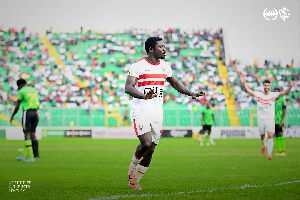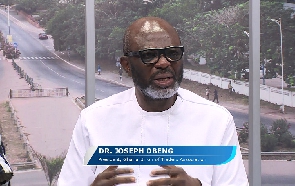- Home - News
- TWI News | TV
- Polls
- Year In Review
- News Archive
- Crime & Punishment
- Politics
- Regional
- Editorial
- Health
- Ghanaians Abroad
- Tabloid
- Africa
- Religion
- Election 2020
- Coronavirus
- News Videos | TV
- Photo Archives
- News Headlines
- Press Release
General News of Tuesday, 8 January 2008
Source: GNA
Supports for removal of R&ME from syllabus
Kumasi, Jan. 8, GNA- The Afrikania Mission has stated that the removal of Religious and Moral Education (R&ME) from the syllabus of the new educational reforms is in the right direction.
It noted that Ghana does not need the teaching of religion and morals in schools to develop, but the development of the peoples' culture, which is built on hard work and dedication, saying, what was retrogressing the country's development was the poor mindset to work very hard. Okomfo Bremfi Badart Banaaze Khaldaan, a leading member of the Priesthood Council of the Afrikania Mission, who stated this, said the Mission had opposed the teaching of religious and moral education in schools since time immemorial.
"We have never favoured the teaching of religious and moral education in our schools since Ghana is an independent state and a sovereign on its own", he emphasised.
In a statement to react to the call by the Catholic Bishops Conference and other religious organizations for the government to re-instate the teaching of religious and moral education in basic schools, Okomfo Khaldaan said the Afrikania Mission, found the attempt by the Catholic Bishops and other religious leaders to force the re-instatement of the subjects in the educational system as "wanting and shameful". He said Christianity and foreign imposed religions on Africans and the teaching of religion and morals in schools had not helped to reduce crime wave in Africa and for that matter Ghana. "There is no economic or political research to suggest that stronger religious beliefs and practices within a country are statistically associated with higher rates of revenue or economic growth in this world than developing the peoples' culture", he stressed. Okomfo Khaldaan pointed out that, Ghana was a secular state and that no particular religion had the right to impose its beliefs and practices on the state and or on the people and therefore, each and everyone had the right to belong and practice whatever religion or social organization he wanted. "It also implies that the state is purely separated from religion and this is where I found the Catholic Bishops expression of concern wanting and shameful. This is because they are trying to impose their religious interest as against the state interest, which cuts across all religions". He explained that such a situation poses a danger, since religion should have nothing at all to do with the state, especially a country calling itself a secular state like Ghana.
Okomfo Khaldaan stated that the country's constitution and the laws of the land served as security, which took care of all the morals and punish people for immoral behaviour and protects the people from all evils. "We Afrikanians believe that our moral values are our culture, that our people are our most valuable assets and dear to our hearts and that, we are passionate about our religion, yet we do not endorse it to be part of our educational reforms or curriculum", he added. According to him, it was strange that the Christian community was threatening to defy the removal of the subjects in the new educational reforms by ordering schools under their jurisdiction to treat the teaching of the subjects as compulsory in their missionary schools. The Priest said it was not the responsibility of missionaries to set up schools, hospitals, universities, training colleges among others, rather it is the responsibility of the state.
"Yet it is not bad if missionaries want to help the government to speed up socio-economic development of their people, of which they are a part", adding that "it was the failure of our colonial masters to be responsible and to entrench their traditional religion-Christianity on us and funded missionary institutions in Ghana".
Okomfo Khaldaan said it was unfortunate that after 50 years of independence, their colonial structures were still firmly on the ground, adding that, the Mission was launching a relentless efforts to prevent all colonial influences on the African continent. He said the greatest obstacle to the religious, political, educational and socio-cultural progress was the "mental condition of Africans, which was brought about by the long history of inculcated admiration for what was not theirs and corresponding devaluation of and even contempt for what sprang from their on roots". Okomfo Khaldann appealed to the government not to yield to the pressure, but continue to maintain what is right for the whole Ghanaians and not the interest of a few.










